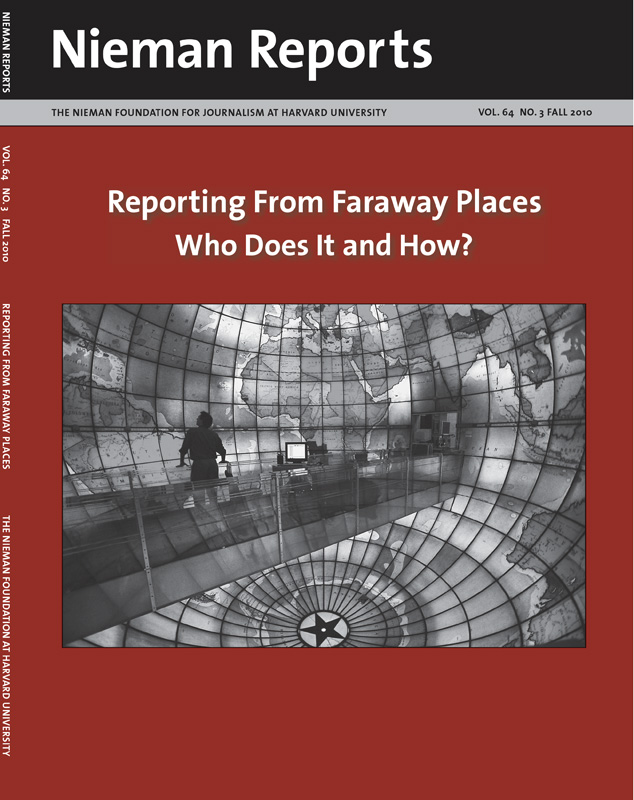RELATED ARTICLES
“Going Online With Watchdog Journalism”
– Paul E. Steiger
Editor in chief, ProPublica
(From Spring 2008)
“Defining an Online Mission: Local Investigative Reporting”
– Andrew Donohue, editor
– Scott Lewis, CEO
Voice of San Diego
(From Spring 2009)As news organizations wrestle with the challenge of discovering profitable reporting models for a digital age, at least three types of public service journalism are endangered species—investigative reporting, in-depth statehouse and city government coverage, and foreign coverage. Expensive to produce, they have been subsidized by more profitable facets of news operations. While online news producers like ProPublica and Voice of San Diego offer promising new models to sustain investigative and local government reporting, less experimentation—though some—is being directed at sustaining high-quality international coverage on digital platforms. If greater attention is not paid to this circumstance, we may soon reach a time when the foreign correspondent is a relic from a past age of journalism.
My colleague Solana Larsen offers a provocative suggestion that the end of the foreign correspondent model might be a good thing. Too often, foreign correspondents parachute into unfamiliar situations and offer a view that’s insufficiently informed by the facts on the ground and is overly influenced by the biases of the audience they’re speaking to. The rise of participatory media and the flowering of independent press around the world gives us alternatives to the foreign correspondent: We can listen to local journalists (professional and citizen) who report on the situation in their countries through local eyes, relying on local knowledge.
RELATED VIDEO
Ethan Zuckerman in “Listening to Global Voices” at TEDGlobal 2010 talks about clever strategies to open up your Twitter world and read the news in languages you don’t even know. I share Larsen’s passion for amplifying independent voices to a global audience. But I am less sanguine than she at the prospect of losing the foreign correspondent. In a digital age we can listen to knowledgeable local voices, but it’s unclear that we will. Our experience at Global Voices Online suggests that there is a great appetite for local voices on stories that have made the global radar: the Haitian earthquake, the election protests in Iran. But there’s far less interest expressed in stories that have not cracked the mainstream news narrative, like the coup in Madagascar and its aftermath.
The scarce resource in the age of digital journalism is not high-quality content, but attention. I have no fear of a shortage of quality reporting from Madagascar or Malaysia. Instead, I fear these voices are likely to go unheard. The best foreign correspondents are not just deeply knowledgeable about the countries they write about—they are masters at leading their audiences to a story they might have otherwise ignored. As we move to a time in which we rely more on local voices to report international news, we will need to wrestle with this problem by asking ourselves how we help a U.S. audience pay attention to a Malagasy reporter’s dispatch from her own country.
Ethan Zuckerman is a senior researcher at the Berkman Center for Internet & Society at Harvard University and cofounder of Global Voices Online.



